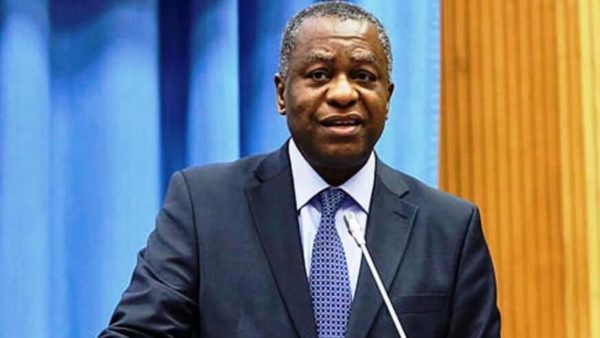
By Ekemini Ladejobi
Nigeria will push for peace and look at the issue of rapid deployment of Africa Standby Force (ASF) to conflict areas.
The country which assumed the post of Chairman of AU Peace and Security Council, would also push for robust engagement in the conflict zones in Africa
The Minister of Foreign Affairs, Mr. Geoffrey Onyeama, outlined the peace initiative in an interview with journalists on the side-line of the 31st Ordinary Session of the Executive Council of the 29th AU Summit in Addis Asaba
ASF is an international, continental African, and multidisciplinary peacekeeping force with military, police and civilian contingents that acts under the direction of the African Union (AU).
The ASF is to be deployed in times of crisis in Africa.
He also said Nigeria was optimistic of clinching a seat in the UN High Commission for Human Rights.
Speaking on the highlights of the Executive council meeting, he said; “we hope to get a seat in the UN High Commission for Human Rights; we do have the AU’s support.’’
The Minister, who also spoke of the country’s chances of occupying positions in other global institutions, said that Nigeria’s chance was very bright.
“For ECOWAS, we are hopeful of getting the positions that we want and for the United Nations (UN), we are pushing for a candidate in the International Telecommunications Union (ITU).
“Though, there is a Zimbabwean candidate who is also going for the same position, we are trying to find a workable way forward on that because we want AU to support a candidate.
“It can sometimes be tricky, but the process is ongoing.”
Onyeama, who spoke further on the highlights of the meeting, said that the AU Committee on ECOWAS on Statutory Positions will on Sunday take decisions on allocations to member states.
“We took part in the meeting and indicated interests in some of the positions that we feel would be of best interest to Nigeria.
He said that the meeting also discussed the reforms of ECOWAS and various options regarding going forward on the reforms.
“These past two years, a team was put in place and that team it was understood, will come in for two years and completely reform the organisation and then leave.
“So, we have to implement that reform and then allocate positions for the new ECOWAS that would emerge after these two years transition period dedicated to reforming the organisation,’’ the minister said.
(NAN)